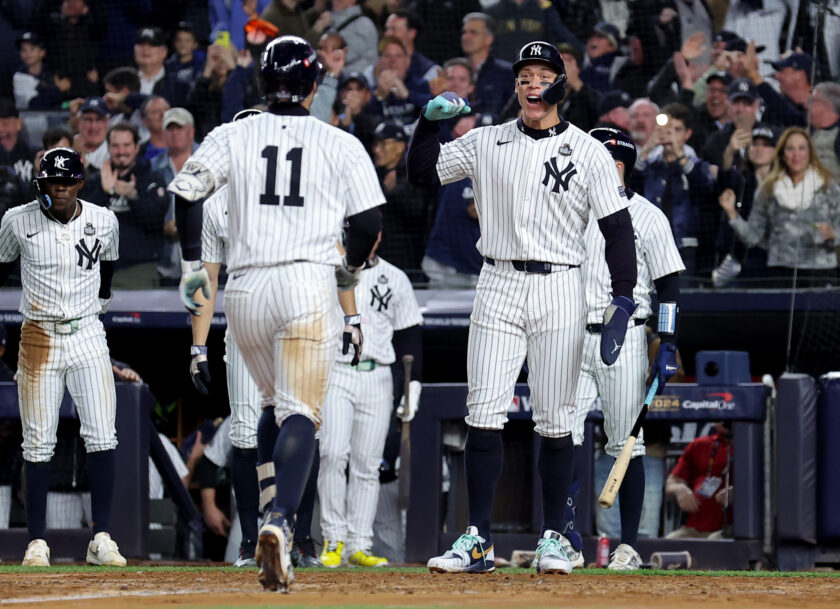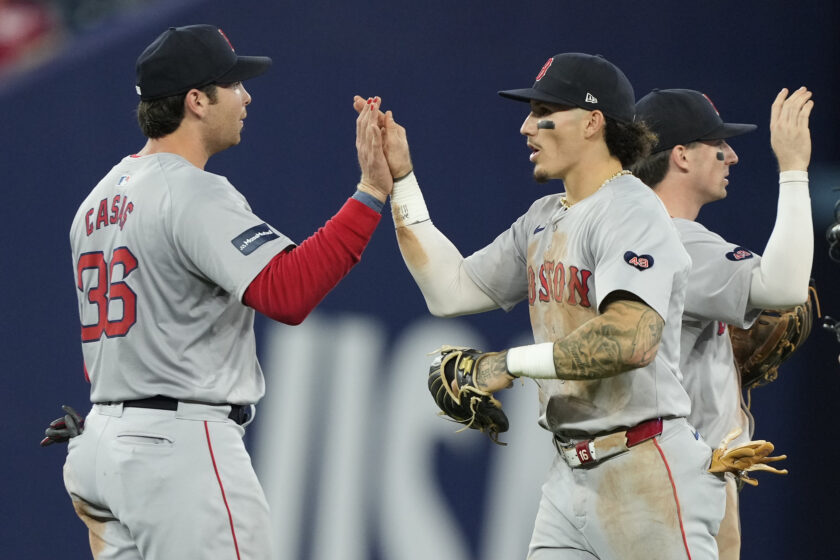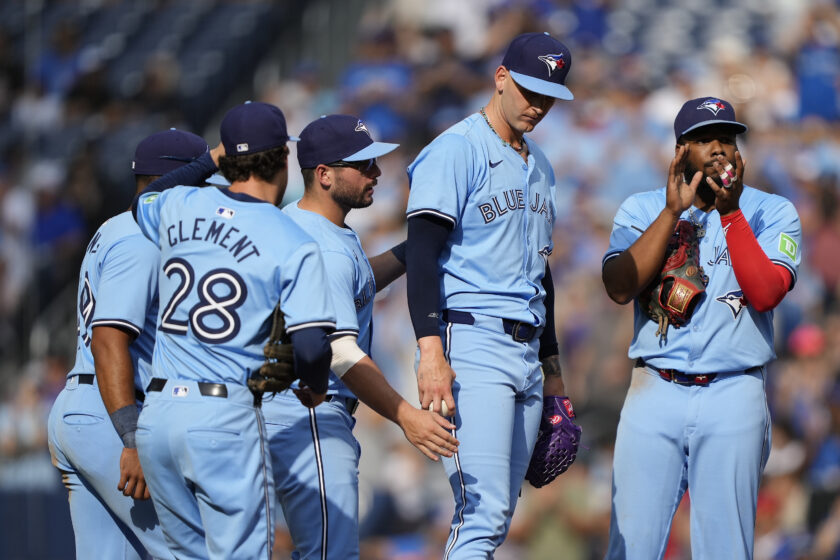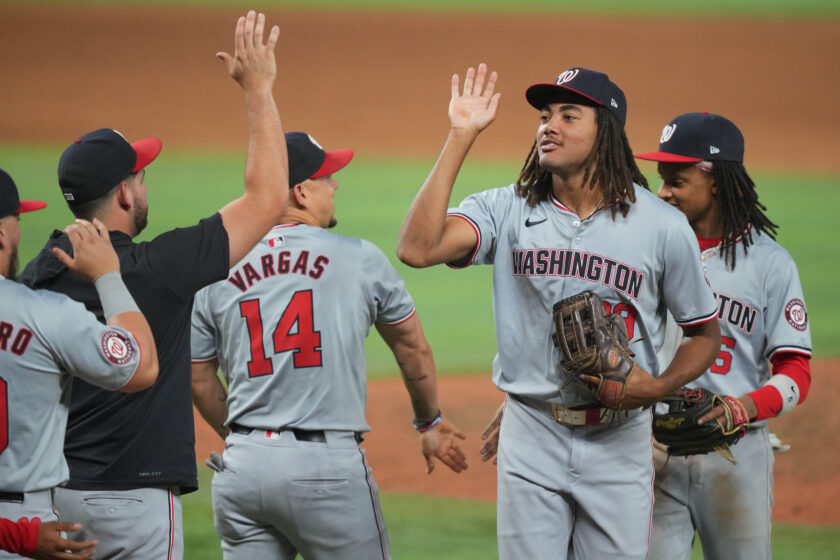Frank Robinson, the infield fly, and the search for meaning
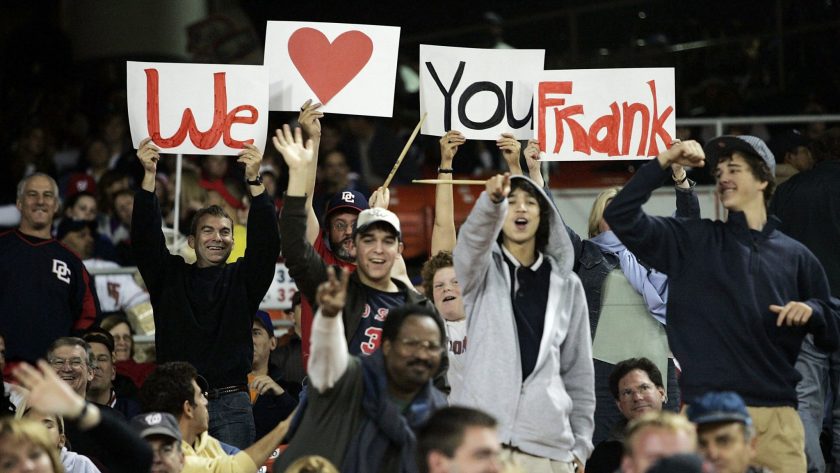
In 2003, Montreal Expos manager Frank Robinson walked into an angry group of his own players and told them they were wrong.
Every so often, you’ll see a video that’s so meaningful and symbolic, so perfectly constituted, that you stare at your computer screen for a while with a satisfied grin on your face, then eventually you’ll snap out of it and start asking your best friends if they’ve seen it yet. For some people, maybe it’s a video of the three tenors singing, or Stephen Hawking explaining the universe. For others, it’s something else.
This is my way of saying that on Monday, I saw the most satisfying thing I’d seen in several years, and I’d invite you to take a look. In this 92-second video, you’ll find so much more than a single play from the fifth inning of a Giants-Expos game in 2003. You’ll find hope. Morals. Meaning.

What you’ll also find, though, is a play that could happen five times a week. The Giants have the bases loaded with one out, and Barry Bonds is up. Bonds takes a mighty swing at the first pitch he sees, and pops it straight up. The umpires immediately call an infield fly.
Here’s where the fun starts. Michael Barrett, the Expos’ catcher, and Fernando Tatís, the third baseman, converge on the ball’s landing spot. Wil Cordero, the first baseman, comes too, but he’s a little late. Barrett is right under it, but he can’t see it; he gestures for Tatís to take over, Tatís sprints in, but the ball falls at Barrett’s feet. Tatís grabs it. He steps on home plate.
But he doesn’t have any reason to step on home plate, of course, because the infield fly was in effect. There’s no force. In this moment, it’s as if Barry Bonds, the batter, never existed. Neifi Pérez, the Giants’ runner at third, doesn’t know the rule either. He starts down the third base line, directly towards Tatís, who is holding the ball. He doesn’t have to, because there’s no force, but he runs anyway. Then, 10 feet from home plate, he stops and waits. The gathered Expos think he’s already out. They pay him no mind. He seems to think he’s out as well.
Then, suddenly, he comes to his senses. He looks up, and you can see the glimmer in his eye as he realizes he’s about to score a run in the most interesting way possible. He tiptoes around the assembled Expos and steps on home plate, and the umpire calls him safe. The Expos, of course, still don’t know the rule — they have no idea what’s just happened. So they converge on the umpire, bellowing and pointing furiously at the plate, unaware that the umpire doesn’t care whether they stepped on it.
So, the situation on the field, in brief: three Expos players, united in the steadfast belief that the umpire just inexplicably blew the easiest call in the world, are yelling about it. They’re objectively wrong. What happens next will warm your heart.
Frank Robinson, the Expos’ manager, comes out. Robinson played from 1956 to 1976; he’s seen a lot of baseball. He knows exactly what’s happening. But as a manager, he’s supposed to have his players’ back. So what does he do?
What he does, essentially, is tell his players to stuff it.
He approaches his players, gathered around home plate, and you can see the anger on his face. He says maybe three words, and makes a hand gesture that clearly means “get out of here, stop being stupid, and go play the game.” He doesn’t even break stride. He turns a quick 180, and walks back to the dugout, muttering angrily to himself.
Maybe you need to have attained a certain level of baseball literacy before you appreciate this, but as I watch this video, it’s the most satisfying thing I’ve seen in years. Frank Robinson is what the world sorely needs: an authority figure willing to step into the middle of an argument, and tell the people on his side, “No. He’s not wrong. You are.”
This isn’t limited to any specific group or any individual argument. Every person and every organization that’s ever made an argument could benefit immensely from having Frank Robinson in the room. MLB owners would benefit, and so would the players. Old-school baseball fans would benefit, and sabermetricians would too. It’s such a simple thing to remember, but so important. You might be wrong.
And only a rule like the infield fly, that pernicious little dictum that so often seems meant to confuse, could illustrate the need for Frank Robinson so well. You can’t ask everyone to learn the nuances of the infield fly rule. You yourself might think you understand it; you may be wrong. So take some time. Think things through. Check your work. You don’t want Frank Robinson to yell at you.
I have followed New York sports passionately for almost my entire life, since I went to Shea Stadium in 2004 and saw Jae Seo lose 8-1 to the Pirates. At journalism school, I once missed covering a Land Use Committee meeting to write about Jacob deGrom's last start of the year.

